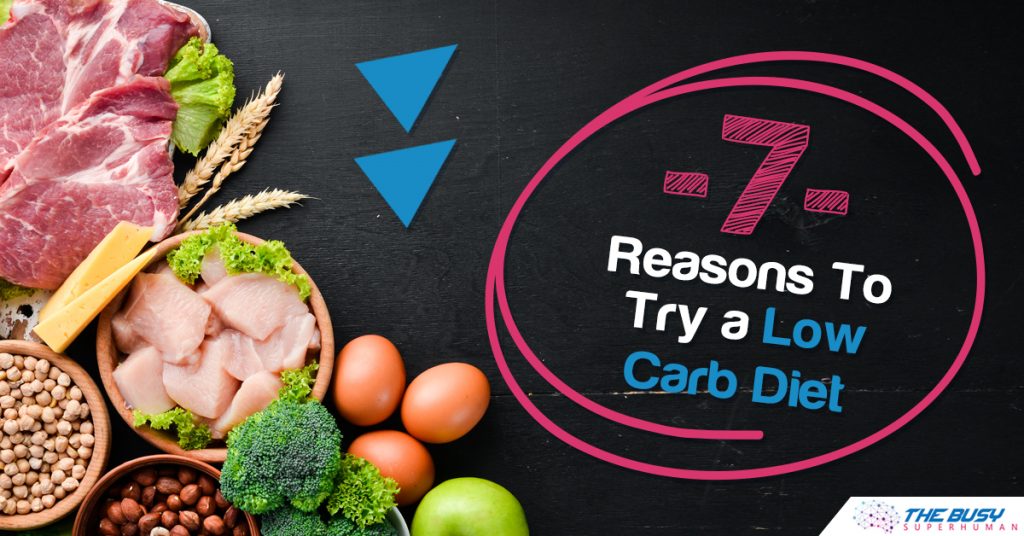Seven reasons to give low carb a go for your mental health

For people with depression, anxiety, bipolar disorder, ADHD, psychotic disorders, bulimia, dementia, or other psychiatric disorders who prefer not to take medication, don’t improve with medication, can’t tolerate or, only partially benefit from medication, or have bothersome side effects from medication, trying a simple, low-carbohydrate diet is worth a go.
This statement is based on my study of science in combination with my experience with people in the real world.
Low-carbohydrate diets are safe for almost everyone and can lead in many cases to significant improvements in a wide variety of symptoms. There are many potential benefits. If side effects do occur, they are generally harmless and temporary.
While dietary changes can’t always completely replace medications, they can improve overall health and make good sense as a viable alternative to medication in some cases, or as a complement to conventional care in other cases.
Here are seven reasons to try a low-carb or ketogenic diet for mental health:
1. Reduce inflammation.
High-sugar diets promote excessive, unnecessary inflammation inside the brain, triggering the release of various inflammatory cytokines—tiny SOS signals that recruit first-responder cells to the scene. Inflammation of this type is well established as a root cause of most psychiatric and neurological diseases. Low-carbohydrate diets have been shown to reduce markers of inflammation.
2. Improve blood glucose control.
The higher your blood sugar, the higher your brain sugar . . . each time your blood sugar spikes to unhealthy highs, you’re flooding your brain tissue with excess glucose. There are many ways that high glucose levels are toxic to brain cells, including the formation of sticky, dysfunctional proteins called “Advanced Glycation End products” or AGEs. Low-carbohydrate diets are very effective at lowering blood glucose levels. Protect your precious neurons from glucotoxicity.
3. Lower blood insulin levels.
Persistently or repeatedly high insulin levels can cause the insulin receptors on the surface of the blood-brain barrier to become insulin-resistant, meaning they can become damaged, desensitized, and decrease in number. With fewer healthy, responsive insulin receptors on the surface of the blood-brain barrier to escort insulin into the brain, insulin levels inside the brain will fall.
Low brain insulin is dangerous, because brain cells require insulin to process glucose and turn it into energy. This sluggish glucose-processing problem is called “cerebral glucose hypometabolism,” and it is a major risk factor for neurodegenerative disorders like Alzheimer’s and Parkinson’s disease. Low-carbohydrate diets can be very helpful in lowering blood insulin levels.
4. Boost antioxidant defenses.
High-sugar diets cause excessive, unnecessary oxidative damage. Flooding cells with too much glucose all at once leads to a flood of oxygen free radicals, which are normally mopped up by our own natural, internal antioxidant molecules (such as glutathione).
There extra free radicals wreak havoc in the brain, damaging proteins, lipids, DNA, and other important cell components. They can even damage the blood-brain barrier, allowing unwanted substances from your blood into the brain. Low-carbohydrate diets naturally help improve your internal antioxidant capacity.
5. Energise mitochondria.
High-sugar diets damage mitochondria, the energy-generating organelles inside brain cells. As a highly metabolically active, electrical organ, the brain is an energy hog, demanding about 20- 25 percent of the body’s energy. Mitochondria must be healthy to provide cells with a steady supply of energy. Low-carbohydrate diets—particularly ketogenic diets—have been shown to improve the health and vitality of mitochondria.
6. Stabilise stress hormones and appetite.
Refined carbohydrates, like sugar, flour, fruit juice, and processed cereals, place your hormones on an invisible, internal roller coaster. Every time your blood sugar and insulin spike to unnaturally high levels, they soon crash back down, triggering the release of stress hormones, including adrenaline.
Adrenaline surges, which can occur four to five hours after consuming too much sugar, can contribute to panicky, “hypoglycemic” symptoms, like anxiety, sweating, irritability, shaking, difficulty concentrating, and carbohydrate cravings. Low-carbohydrate diets help smooth out the highs and lows in blood sugar that lead to hormonal instability in the first place.
7. Raise BDNF levels.
High-sugar diets can reduce levels of an important molecule called Brain-Derived Neurotrophic Factor. BDNF is a key player in neuroplasticity—in other words, BDNF helps the brain cope with, respond to, and recover from stress. Healthy BDNF levels contribute to resilience—something we all need, as stress is a normal part of life. Low-carbohydrate diets—particularly ketogenic dietshave been shown to raise BDNF levels.
Note: A low-carbohydrate diet is not the only nutritional strategy worth considering; improving overall dietary quality with a whole-foods pre-agricultural diet (aka “paleo-style” diet) or a whole-foods post-agricultural diet (aka “Mediterranean” diet) may be helpful for some, especially for those without a significant degree of insulin resistance. However, neither of these approaches typically lower insulin and blood glucose levels as reliably as low-carbohydrate diets do.
Word of caution
People currently taking psychiatric medication (or medication of any kind) or who have a history of serious mental health symptoms, such as suicidal ideation, mania, or psychosis, should not embark on a low-carbohydrate diet without additional information and professional support, as medication levels can be affected, and some symptoms may temporarily worsen during the initial weeks of adaptation.
Take home message
Most of us have been feeding our brains incorrectly for our entire lives and have no idea how much better we could feel if we ate differently.
A whole-foods, low-carbohydrate diet is a safe and healthy option for most people that can help improve brain metabolism, mental health symptoms, and overall health.
Thank you for reading
